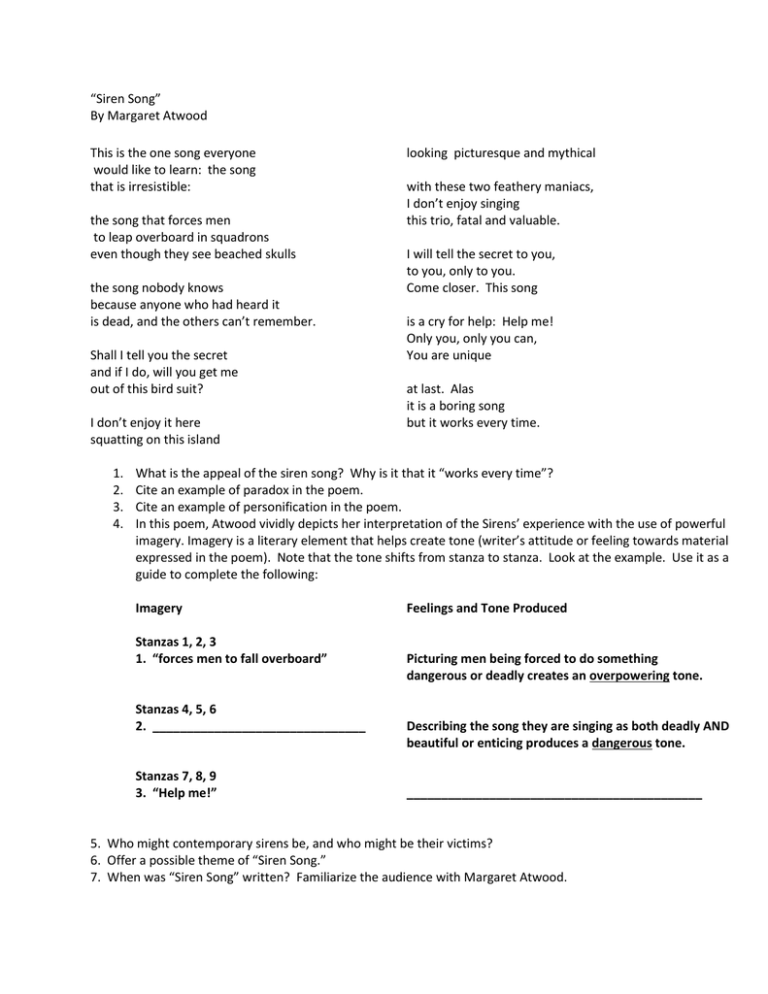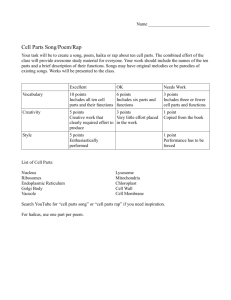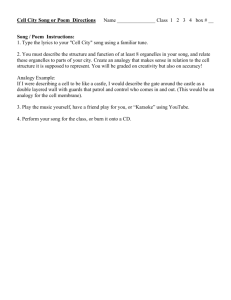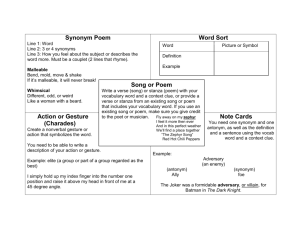Siren Song
advertisement

“Siren Song” By Margaret Atwood This is the one song everyone would like to learn: the song that is irresistible: the song that forces men to leap overboard in squadrons even though they see beached skulls the song nobody knows because anyone who had heard it is dead, and the others can’t remember. Shall I tell you the secret and if I do, will you get me out of this bird suit? I don’t enjoy it here squatting on this island 1. 2. 3. 4. looking picturesque and mythical with these two feathery maniacs, I don’t enjoy singing this trio, fatal and valuable. I will tell the secret to you, to you, only to you. Come closer. This song is a cry for help: Help me! Only you, only you can, You are unique at last. Alas it is a boring song but it works every time. What is the appeal of the siren song? Why is it that it “works every time”? Cite an example of paradox in the poem. Cite an example of personification in the poem. In this poem, Atwood vividly depicts her interpretation of the Sirens’ experience with the use of powerful imagery. Imagery is a literary element that helps create tone (writer’s attitude or feeling towards material expressed in the poem). Note that the tone shifts from stanza to stanza. Look at the example. Use it as a guide to complete the following: Imagery Stanzas 1, 2, 3 1. “forces men to fall overboard” Stanzas 4, 5, 6 2. _______________________________ Stanzas 7, 8, 9 3. “Help me!” Feelings and Tone Produced Picturing men being forced to do something dangerous or deadly creates an overpowering tone. Describing the song they are singing as both deadly AND beautiful or enticing produces a dangerous tone. ___________________________________________ 5. Who might contemporary sirens be, and who might be their victims? 6. Offer a possible theme of “Siren Song.” 7. When was “Siren Song” written? Familiarize the audience with Margaret Atwood. “We Real Cool” The Pool Players. Seven at the Golden Shovel. We real cool. We Left school. We Lurk late. We Strike straight. We Sing sin. We Thin grin. We Jazz June. We Die soon. 1. Why do you think Brooks chose to attach the epigraph “The Pool Players. Seven at the Golden Shovel” to her poem? How does this information – coming where it does at the beginning of the text – influence your reading of the poem? Epigraph: a brief motto or quotation set at the beginning of a text (a book, a chapter of a book, an essay, a poem) to suggest its theme. 2. Compare and contrast “Siren Song” and “We Real Cool.” 3. Offer a possible theme of “We Real Cool.” 4. When was “We Real Cool” written? Familiarize the audience with Gwendolyn Brooks.




